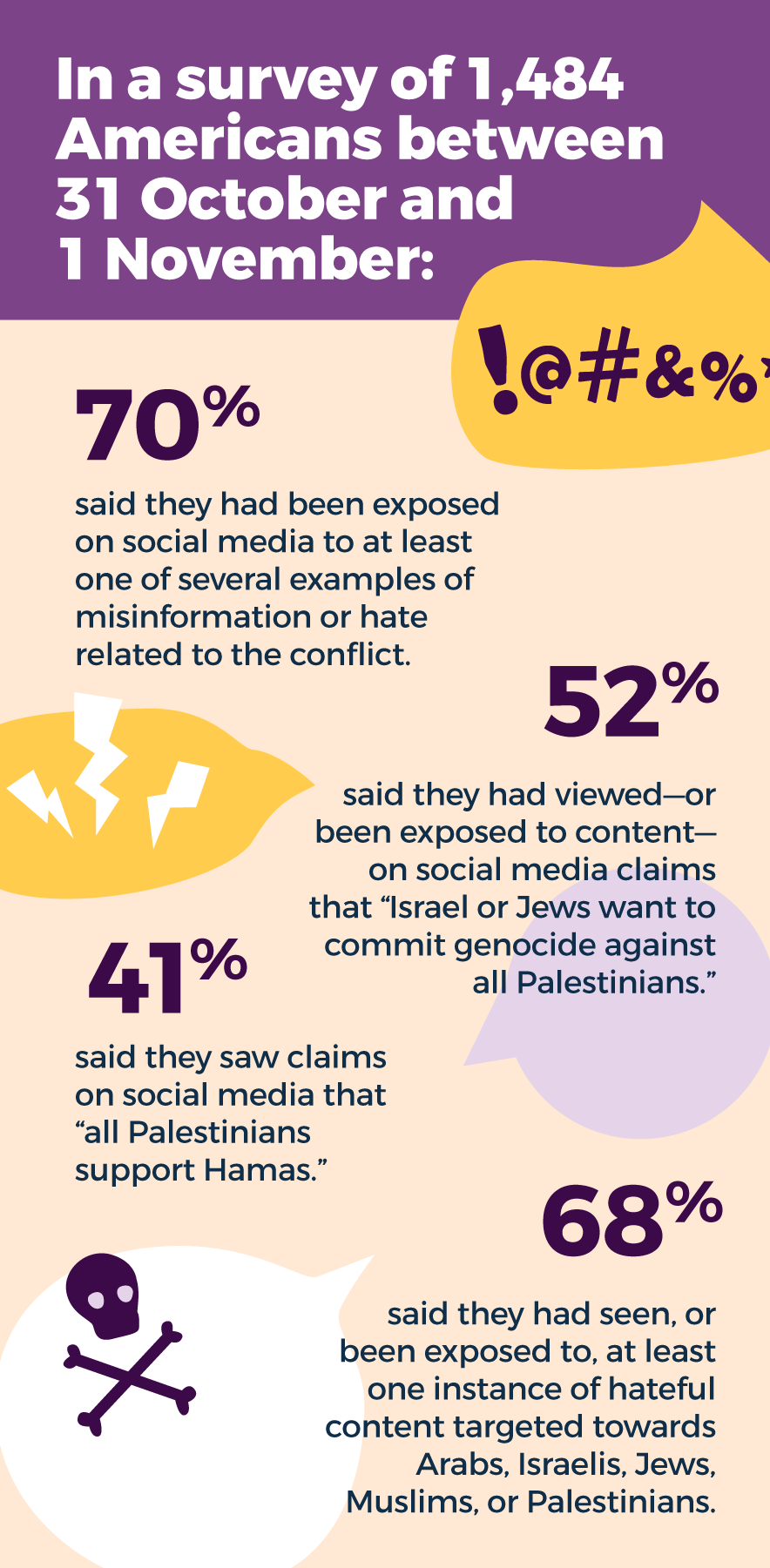Hateful Rhetoric Online Rises Following Outbreak of Israel and Hamas War
Hamas’ terror attack in Israel on 7 October 2023 represented a major security breach as militants were able to gain access deep into the country to kill approximately 1,200 people and take roughly 240 people hostage.
The assault prompted Israel to declare war on Hamas, retaliating in the form of a massive bombardment that has killed more than 11,000 people and a ground invasion of the Gaza Strip. As of publication time, the Gaza Strip was controlled by Hamas, one of two major political parties in the Palestinian territories that many countries have designated as a terrorist organization.
While the conflict unfolded in the physical arena, it was also being fought in the digital realm with a rise in inflammatory and hateful content being shared online, according to analysis by the Anti-Defamation League (ADL).

What is Hateful Content?
The ADL defined hateful content as content that included: antisemitic or anti-Jewish, anti-Israeli, Islamophobic or anti-Muslim, or anti-Arab information.
What is Misinformation?
The ADL defined misinformation in categories, including “distortions that Israel or Jews want to commit genocide against all Palestinians, claims that Israel or Jews purposely coordinated Hamas’s attack, reports that Israel hired ‘crisis actors’ to exaggerate the conditions of the war, allegations that armed terrorists in the U.S. are disguising themselves as Jews, claims that Hamas militants are planning to invade the U.S. via the southern border, claims that all Palestinians support Hamas, and claims that all Palestinians are members of Hamas.”

“Of these options, Anti-Israeli and Anti-Palestinian content were reported as having been viewed the most, by 53% and 48% of participants respectively,” according to the ADL survey. “More general antisemitic or anti-Jewish and Islamophobic or anti-Muslim content were reported at a slightly lower frequency, at 39% and 34% respectively.”
 Research shows that negligence in moderating hate in an online space allows extremist ideologies to be normalized. Individuals who believe those ideologies may then commit acts of violence.
Research shows that negligence in moderating hate in an online space allows extremist ideologies to be normalized. Individuals who believe those ideologies may then commit acts of violence.
A previous Security Management review of a study from the Center for the Study of Hate and Extremism (CSHE) found that conflicts in the Middle East involving Israel frequently lead to big jumps in hate crimes in the United States—especially anti-Semitic attacks.
“In CSHE’s independently collected major city survey for 2021, anti-Jewish hate crime rose more than the totals reached by the FBI, by 59%, due to a surge during the Gaza War, but also in likely smaller part because of better coordination between victims, advocacy groups, and authorities in major cities that have higher Jewish populations,” according to the report.
Megan Gates is the editor-in-chief of Security Technology and senior editor at Security Management. Connect with her at [email protected] or on LinkedIn. Follow her on Twitter or Threads: @mgngates.











